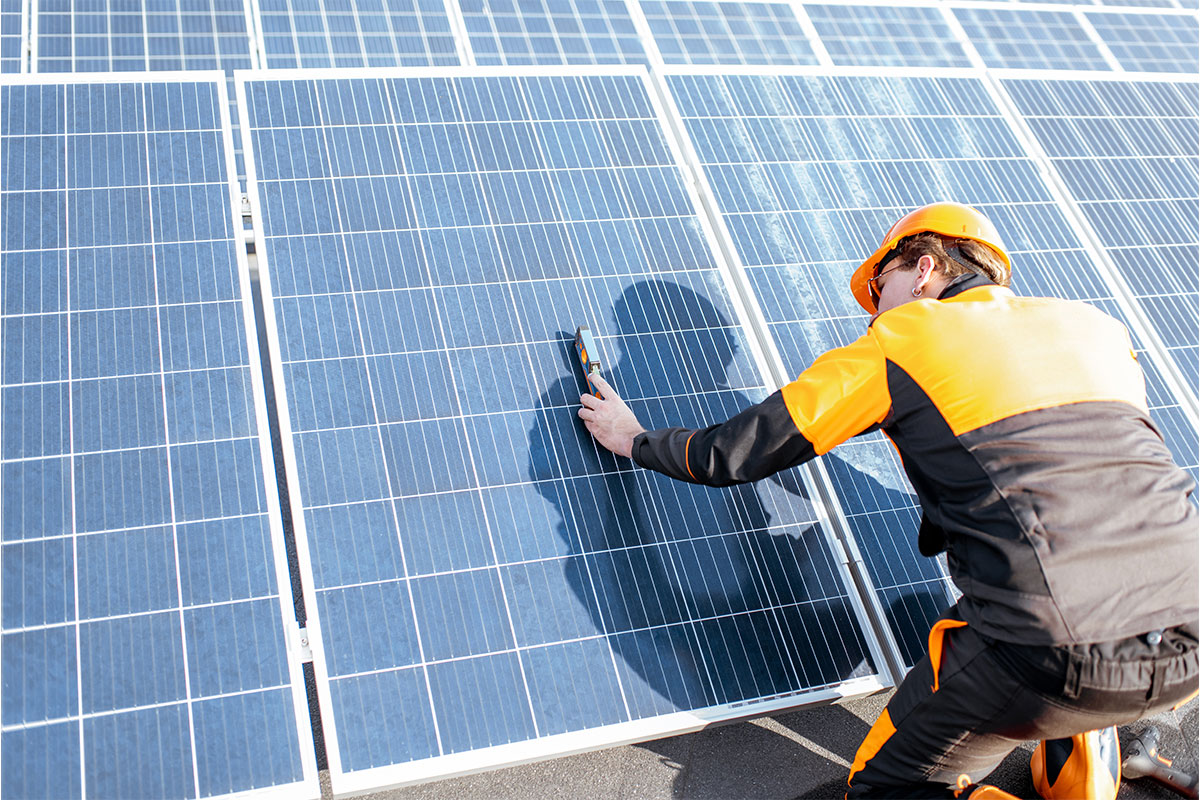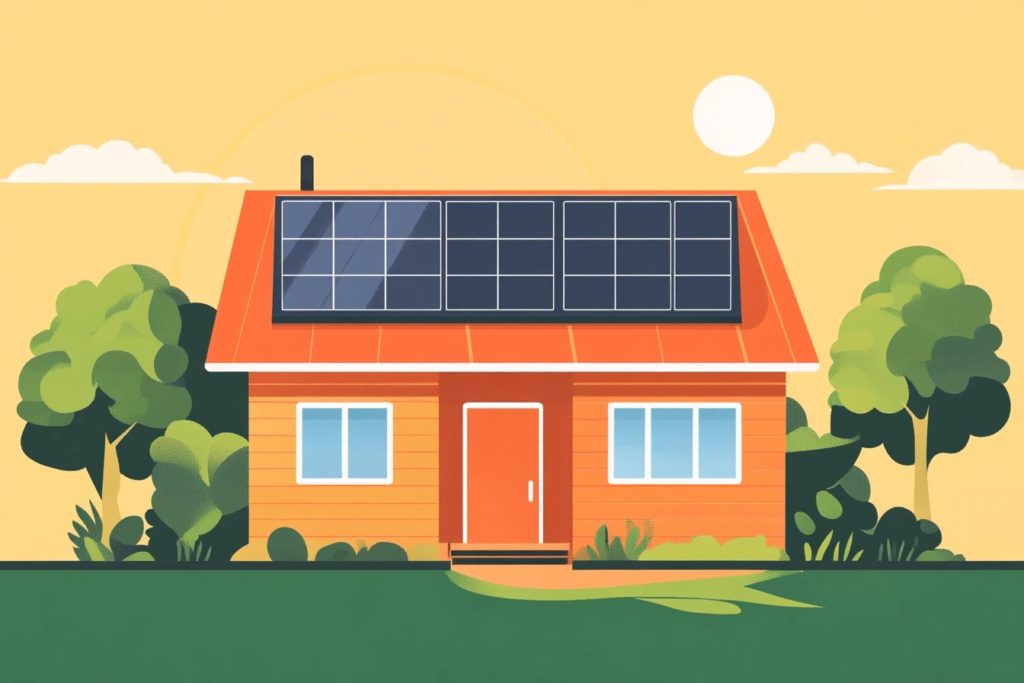
Whether you’re looking to save money by producing your own power, you want to reduce your carbon footprint, or both, installing solar panels has become increasingly popular over the years. In order to properly install solar panels for your house you need to determine how much power you require. Different types of solar panels have different energy outputs, which typically range from 250 and 400 watts of power.
To help you figure out which solar panels are the best option for you, let’s discuss how solar panels are rated and why solar output is such a big deal. Along the way, we’ll also take a look at the ratings of some top-quality solar panels, giving you concrete examples of panels you can purchase for your own needs.
The wattage of a solar panel is based on the amount of direct current power it’s capable of producing in normal conditions — for example, in direct sunlight on days without rain. The first step is to examine the listed wattage capacity of the panel. As you might expect, more watts means more power, but there can be some other benefits to high-watt solar panels as well, like improved efficiency ratings. In addition, you won’t need as many panels to fulfill your power needs.
However, power output rating isn’t the be-all-end-all of choosing the right panels for your solar system. Sometimes, a higher power rating doesn’t reflect the efficiency of the panel but is instead a result of the panel’s physical size. For the most part, solar panels come in two varieties: 60-cell and 72-cell. 60-cell panels are roughly 3.25 feet by 5.5 feet, and they usually max out around 300 watts. As for 72-cell solar panels, they measure around 3.25 feet by 6.5 feet, and they can produce 350-400 watts.
This is where understanding efficiency ratings for solar panels is especially important. Most solar panels offer efficiency ratings somewhere between 15% at the low end and 20% at the top end. In general, the newer model your panel is, the higher efficiency ratings it’s likely to have, and better efficiency ratings mean more power potential.
The brand of solar panel you purchase can also have a significant impact on your total power production capacity. Brands like LG and Panasonic produce solar panels with efficiency ratings right around 20%, and these panels usually have electricity outputs in the 350-watt range. On the other hand, many other solar panels have average efficiency ratings in the 15-17% range, with total outputs around 250-300 watts. This doesn’t mean LG and Panasonic’s offerings are objectively “better” — it’s all about finding the right solar panels for your specific needs.
Another important aspect of determining which solar panels to buy is how many hours of sun you typically receive. For this step, we recommend taking a look at the National Renewable Energy Laboratory’s “Solar Resource Data, Tools, and Maps” page. Here, you can find maps showing annual sunlight averages, monthly averages, direct normal irradiance, and more.
All you need to do to figure out the energy potential of your location is to multiply the wattage of your chosen solar panels by the number of hours you receive sunlight. If you buy a 300-watt panel, you could receive up to six hours of daily direct sunlight in some parts of California, Nevada, and Arizona, meaning that panel could produce 1,800 watts or 1.8 kilowatt-hours. However, if you install that same panel in parts of the Pacific Northwest, where there are only 3.5 sun hours per day, your total output would only come to 1,050 watts or 1.05 kwh.
So, which solar panels are the most powerful options? The highest efficiency ratings in the industry belong to the X Series by Sunpower (with an incredible 22.8% efficiency rating), along with REC Solar’s Alpha Series and LG’s High NeON, which both boast a 21.7% efficiency rating. As for pure power output, it’s tough to top Trina Solar’s 500-watt Duomax V and Tallmax V.
Do you need some more information before making your decision? Give LGCY Power a call at 1-866-566-2650. We can help you determine whether solar panel installation is the right choice for your home, and also figure out which panels to use, and how many. Our highly-trained Energy Consultants can even visit your home in person to walk you step-by-step through the solar installation process.
Solar panel installation can be confusing and frustrating if you go it alone, which is why LGCY Power is here to help. Contact us today!




